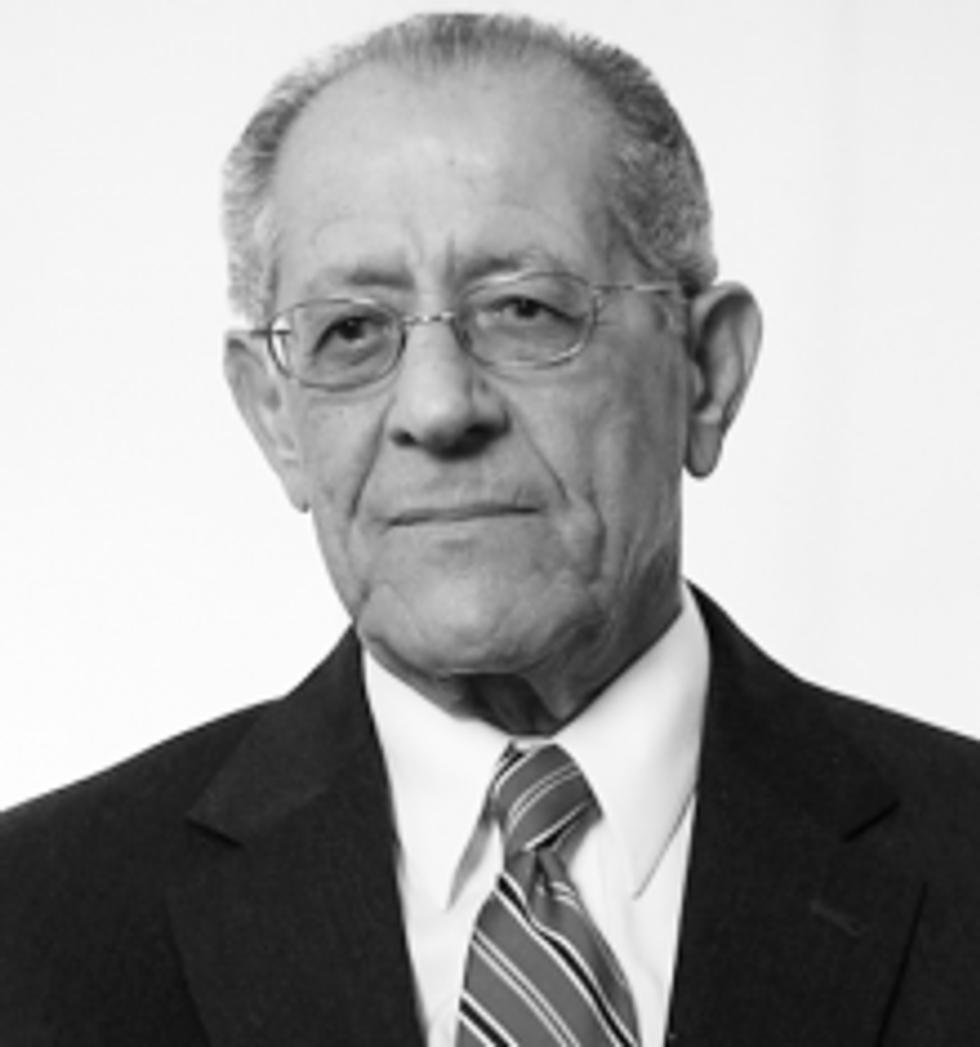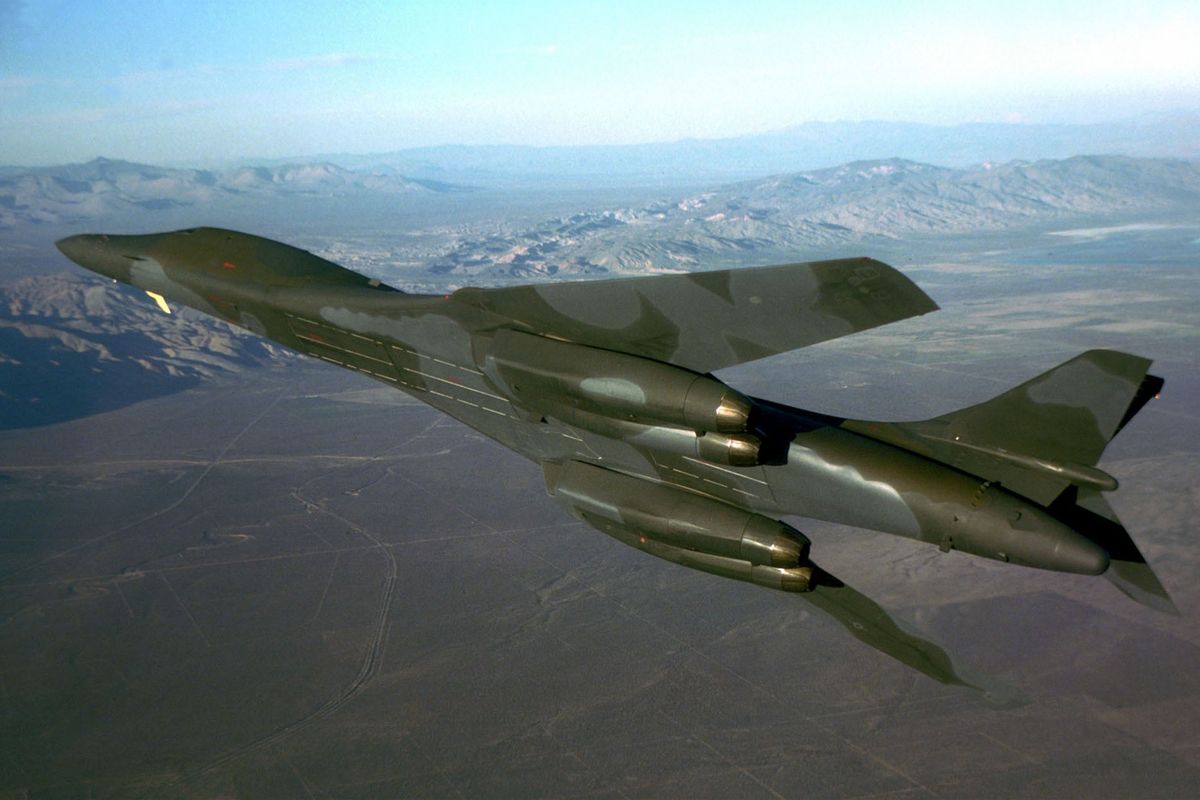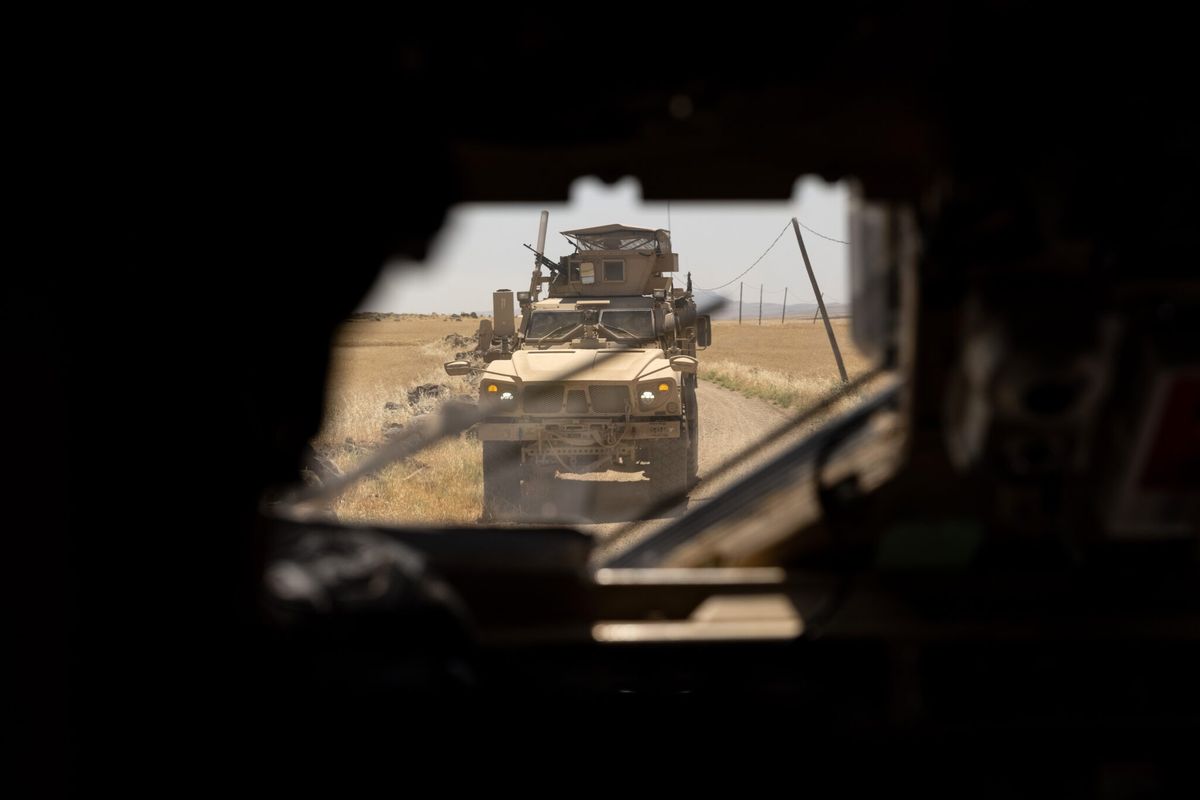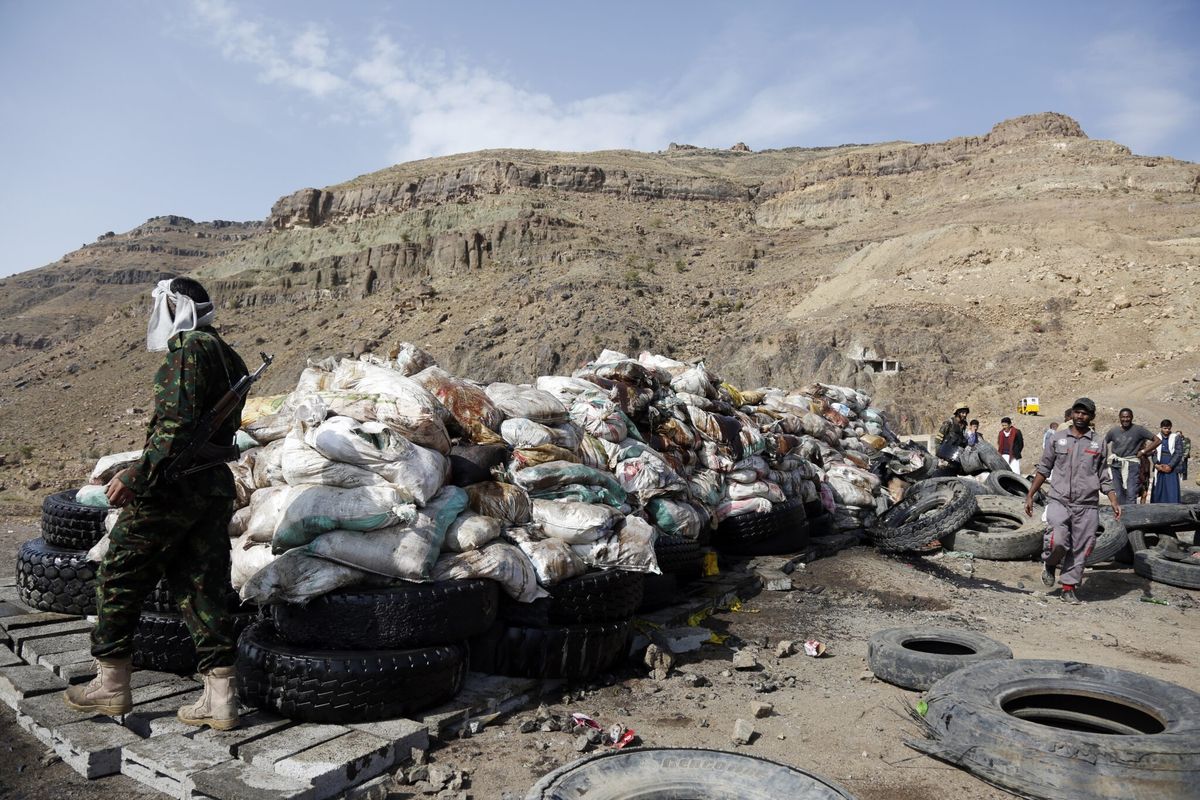SPECIAL REPORT – This is a Special Report from The Cipher Brief
The White House has confirmed President Trump’s intentions to withdraw U.S. forces from Syria.
“We have defeated ISIS in Syria, my only reason for being there during the Trump Presidency,” the president said in a Twitter post on Wednesday. He offered no details on his plans for the military mission, nor a larger strategy, in Syria.
Terrorism experts have expressed serious concern over how an uncoordinated withdrawal of troops could create fertile ground for terrorist organizations like ISIS and Al Qaeda to regroup. Others are concerned about the opportunities it creates for the government of Bashar al-Assad as well as Russia and Iran, key players in the region.
“The president has made a decision to withdraw, and withdrawing from Syria, in the face of ISIS still remaining there, is similar to the U.S. withdrawing from Afghanistan after the Soviet war,” says Dr. Kimberly Kagan, founder of the Institute for the Study of War, a non-partisan, non-profit public policy research organization. "This is exactly how we got to 9/11, and the president has set us on a course to be out of Syria as ISIS revives its organization and its military capabilities.”
The New York Times reported this week that Secretary of Defense James Mattis and other senior officials tried to dissuade President Trump from a complete withdrawal, arguing that it would essentially surrender foreign influence in Syria to Russia and Iran. That sentiment was echoed by former Ambassador Nicholas Burns who tweeted on Wednesday “Withdrawal of U.S. Special Forces from Syria will strengthen Assad, Putin and Iran. Will weaken our ability to help end the Civil War and protect civilians and refugees. A misguided decision by President Trump”.
And in a briefing to reports on Dec 11, Brett McGurk, the U.S. envoy to the coalition fighting ISIS said, “The military mission is the enduring defeat of ISIS,” adding “We have obviously learned a lot of lessons in the past, so we know that once the physical space is defeated, we can’t just pick up and leave. So, we’re prepared to make sure that we do all we can to ensure this is enduring.” “Nobody is declaring a mission accomplished,” he said.
Russian President Vladimir Putin was among the first to praise President Trump’s decision, amid a collective outcry from U.S. experts including members of Congress, who uniformly blasted the decision, calling it short-sighted on behalf of the U.S. and a huge win for ISIS. Senator Lindsay Graham is asking the President to immediately reverse course.
Turkish President Recep Tayyip Erdogan held talks with Iranian President Hassan Rouhani on Thursday, saying it is “deepening [its] cooperation with Iran,” according to CNN.
Bottom Line Up Front:
If the U.S. withdraws all troops, it risks losing what little leverage it has over Syria's political transition and risks opening the door to actors who are hostile to U.S. interests to flourish in northern Syria.
Background:
- The Syrian Civil War is an ongoing multi-sided conflict in Syria fought between the Ba'athist Syrian Arab Republic led by Syrian President Bashar al-Assad, along with domestic and foreign allies, and various proxy forces opposing both the Syrian government and each other in varying combinations.
- Iran and Russia support the Syrian Government and provide military support, along with others.
- The Russians have been providing military air support since 2015.
- The U.S and its allies support Operation Inherent Resolve, the Joint Task Force established by the U.S. to counter ISIS in the region.
- Syria has been the scene of intense fighting involving air craft, special forces, suspected chemical attacks by the Syrian government, and intense skirmishes involving U.S. Special Operations Forces and Russian paramilitary contractors.
- The conflict has created one of the worst humanitarian crises of our time, with UN estimates of more than 6 million internally displaced Syrians, with around 4 million now living as refugees outside of Syria.
General Jack Keane (Ret.), Former Vice Chief of Staff, U.S. Army
"The U.S. withdrawal in Syria is a strategic mistake. I hope President Trump will reconsider his decision. If he does not, I am confident he will come to regret it. How we end a conflict is more important than how we started one."
"President Bush won the war in Iraq with the Surge. President Obama lost the peace by premature withdrawal and the result was ISIS," says Keane. "The military, under President Trump, has destroyed ISIS’ safe haven in Syria but will lose the peace by withdrawing. ISIS is not defeated. It is not idle speculation that ISIS will rebuild and re-emerge, once again, to control territory; U.S. intel services have forecasted it. Iran will be an even greater threat as it will own all of Syria, putting Israel more in danger, and gaining a major strategic victory by establishing the Shia crescent from Iran through Iraq through Syria to Lebanon and the Mediterranean. The strategic consequence will be felt for years to come as Syria becomes Iran’s strategic anchor in the Middle East. Some supporters of the President's decision say its time for America to stop doing the heavy lifting in Syria and leave it to the locals. Indeed, the U.S. force level in Syria is a modest 2,200 troops and they are only advisors who help the Syrians plan their operations and coordinate for coalition artillery and air support. The Syrian Democratic Forces (SDF) are the primary fighters. Also influencing the President's decision are reports of Erdogan’s threat to attack the SDF who are largely Syrian Kurds. If true, it is stunning that Erdogan can run the U.S. off the Syrian battlefield."
General Jack Keane (Ret.), Former Vice Chief of Staff, U.S. Army
"We should be staying the course with a modest troop investment, stabilizing eastern Syria with a major reconstruction effort and ensuring a seat at the table for a political solution. Abandoning Syria denies the U.S. any consequential influence to a final political solution ceding it to Iran and Russia."
Open National Security Questions
The announcement of the troop withdrawal was described by members of Congress as ‘Coming out of left field,” and introduced significant, national security-focused questions not yet answered by the Administration. Among the most serious:
- Would the move invite Turkish aggression toward our Kurdish allies, and would the U.S. lose insight into what is happening on the ground in Syria?
- How would the U.S. address bad behavior in Syria by the regime, Iranians, or Russians?
- Does the U.S. plan to seek guarantees from Turkey that they will not attack the SDF?
- Does the U.S. plan to seek assurances from the Russians that they will withdraw certain military capabilities in Syria?
- Will the U.S. peg the withdrawal to Iran's withdrawal of proxy groups?
But perhaps most important question for national security professionals to assess in the immediate term, is how terrorist organizations like ISIS and Al Qaeda and how countries like Russia and Iran, may be able to take advantage of the chaos generated by the announcement, without the communication of a solid, strategic plan.
Dr. Kimberly Kagan, Founder and President of the Institute for the Study of War
"The president has made a decision to withdraw, and withdrawing from Syria, in the face of ISIS still remaining there, is similar to the U.S. withdrawing from Afghanistan after the Soviet war. This is exactly how we got to 9/11, and the president has set us on a course to be out of Syria as ISIS revives its organization and its military capabilities."
“The U.S. military and its allies in the area of operations have routinely said that ISIS remains a threat,” adds Kagan. “The defeat of ISIS holding the territorial pocket in eastern Syria is not the defeat of ISIS in Iraq and Syria. It's just the end of the territorial caliphate. We are observing that ISIS is resurging its capabilities inside of Iraq and regrouping in Syria. ISIS is strong and reviving in the area south of Kirkuk City, Iraq, from which it was never really ejected. The town called Hawija was in the 2006, '07, '08 period, and again in the ISIS period, a stronghold of Al-Qaeda in Iraq and then became an ISIS strength. And we are seeing ISIS reconstitute its forces in this area. We have seen ISIS conduct spectacular attacks in Mosul, and it seems to be extorting money from businesses in the Mosul area. And that is an early indicator of its attempts to revive itself and resurge.”
Dr. Kimberly Kagan, Founder and President, Institute for the Study of War
"They have not lost the will to fight. Nor have they lost the capability to fight. ISIS has simply lost the safe haven, and the loss of safe haven is likely to be temporary."
As for Iran, experts are concerned that Tehran will look to take advantage of an opportunity to expand recent aggressive efforts in the region.
Norman T. Roule, Former National Intelligence Manager, Iran, ODNI
"Iran will likely point to the withdrawal as evidence that Washington cannot be seen as a reliable ally, whereas Tehran has repeatedly shown that it is willing to stand by its partner even in the face of international sanctions and diplomatic pressure. This narrative could be especially potent in Iraq."
"Iran will likely view this decision as reason to believe that it can establish a land bridge to the eastern Mediterranean," adds Roule. "If U.S. forces are removed from such locations as al-Tanf, Tehran will seek to expand its commercial influence and weapons options in Syria as well as its ability to transfer surrogate forces from Iraq to Syria."
Emile Nakhleh, Former Member, CIA's Senior Intelligence Service
"This decision means that we will lose any influence on the actions of Iran, Russia and Turkey in Syria. The United States policy has always been to chart a future for Syria without Russia. Our immediate withdrawal from Syria, whether it's in two weeks or a few weeks, means that the future of Syria can easily be decided with Russia staying at the helm."
“The decision also totally ignores the new re-branded Al-Qaeda in Syria,” adds Nakhleh. “HTS, Hayat Tahrir al Sham, is a conglomerate of different groups that supported Al-Qaeda. So, while the President says we have defeated ISIS, we actually have a resurgence of Al-Qaeda in Syria through HTS and we certainly will have a resurgence of ISIS in Syria. And Turkey is not really interested in fighting either of those entities. Turkey is interested in striking at the Kurds and the Kurdish Worker's Party.”
Steven L. Hall, Former Member, CIA's Senior Intelligence Service
"I think you'll see a number of things from Russia now, many of which are predictable. I think one thing that you'll see from Moscow and from the Kremlin is exactly what you were referring to, which is defeating terrorism. The Russians, when in doubt, will always cloak questionable foreign policy endeavors as, "Hey, can't we all agree that terrorists are bad, and so we need to kill them?" Russia will certainly sound, I believe, that anti-terrorist, anti-ISIS theme."
Piecing Together the Decision and the Options
With President Trump offering few details about how he reached his decision to withdraw, some experts are speculating that the President may see this as an opportunity to play to his political base at home, despite the international implications.
Brigadier General Mark Kimmitt (Ret.), Former Assistant Secretary of State for Political-Military Affairs
"The President campaigned on a platform of “getting the U.S. out of dumb and expensive wars in the Middle East”, and his base - many with service in the military or a close connection to the military - certainly sympathized with that point. With the backdrop of a seventeen-year war in Afghanistan, a return to Iraq, no direct threat to the U.S. homeland emanating from ISIS and a confusing mélange of actors fighting the government (when not fighting each other), Syria is likely not a fight for which the President felt he had public support."
Looking Ahead: President Trump has the opportunity to either stay, or reverse course, as both Democrats and Republicans have called on him to do. The longer the Trump Administration allows the decision to stay in play without clarification on the immediate national security-related questions, the greater the opportunity for countries such as Russia and Iran, to extend their influence in the region, out of the reach of the U.S. The time also allows terrorist groups like ISIS, the chance to begin to rebuild quickly.
Read ‘Iran’s Uncontested Influence in Syria’ from Cipher Brief Expert Norm Roule…
Read ‘The Greater Cost of U.S. Absence in Syria’ from Cipher Brief Expert Emile Nakhleh…
Read ‘Prepare for a Return of ISIS’ from ISW’s Dr. Kimberly Kagan…
Read ‘How Will Russia Play a U.S. Syria Withdrawal, from Cipher Brief Expert Steve Hall…
Read ‘President Trump’s Syria Surprise’ from Cipher Brief Expert Brigadier General Mark Kimmitt…
Are you looking for an opportunity to get up close and personal with the best national security experts in the business? Find out more about The Cipher Brief’s Exclusive, Invitation-only 2019 Threat Conference in Sea Island, GA.




















